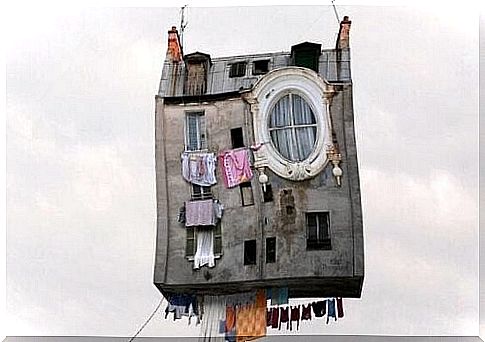3 Psychological Poisons That We Should Remove From Our Home

A healthy home is probably one of the most decisive elements in our psychological fortification. Similarly, the opposite is also true: a “sick” home makes us vulnerable and prone to mentally and physically ill.
The house is both the family unit, that is a father, a mother, children and a dog, and the place where we live and that we share with siblings, friends, parents, sometimes with a pet or with occasional visits. In today’s article we will talk about the houses in which you live together, not those in which only one person lives.
The quality of the bonds we build at home is crucial to our emotional health. Where there is coexistence, there are also conflicts. But at home we should not allow certain behaviors that can become real psychological poisons to enter the house. Today we want to talk to you about three of these toxic attitudes that should never cross your door, much less pitch your tents.
Screaming turns the house into hell
Often we initially scream following an isolated event, but tolerance is elasticising until it becomes a habit, especially if it is reinforced. This happens without realizing it. Today we scream because we are exasperated by the fact that others do not understand what we are saying and tomorrow because they understand too much, or because, if we do not scream, no one is listening (or at least this is what we think).

In the act of shouting, which is more a gesture of annoyance than offense, a poisonous germ begins to incubate: that of violence. Screaming turns normal conflict into a psychologically damaging situation. It is a gesture that intends to impose power, which wants to overturn the raison d’etre of words.
Even sweet words can become a beautiful habit. Do not shout and do not allow them to yell at you: this will strengthen the coexistence and increase your self-esteem, your respect and self-control. “Here you don’t scream” should be a sign to hang in every home.
The grave mistake of not respecting personal spaces
For a coexistence to be healthy, it is very important to know how to respect the spaces of others. With the term “spaces” we are not just referring to the physical places that belong to each member of the family, but certainly these are a good start.

There must be absolute respect for the things of others and for the places that are part of their personal context. Likewise, it is essential that everyone delimits their own borders and makes the others aware. For certain limits it will be possible and necessary to negotiate; remember that it is always a good time to do it. Everyone in the house must have a personal space and be autonomous in it, with the certainty that the others will not cross that limit.
By respecting physical spaces, you also learn to respect the privacy of others. Even if we are living together, everyone has their own life and you can enter this psychological space of others only with an invitation or permission, or if this privacy objectively involves the other as well. In short, everyone has the right to their silences, their secrets and their beliefs.
Another toxic behavior: offloading the burdens on others
Each house includes a series of duties which are not always particularly welcome, but which must be carried out; we are talking about housework. In order for everyone to function at their best, the house needs some attention and certain services must be guaranteed: electricity, hot water, appliances, etc. The physical space and its components must be cleaned and kept in good condition.

Coexistence is much healthier when tasks are distributed consensually. Sometimes it is possible to achieve a fair organization of affairs; maybe it’s not easy to do it, but you have to try. And this is precisely what consents are for, to assign tasks that do not have a direct manager in a reasonable way. In any case, in addition to distributing the tasks, it is very important to complete them.
All members of the house are responsible for it. This condition favors solidarity, cooperation and respect, simplifies life for all and enhances everyone. It also supports the idea that in each group there are tasks to be performed for one’s own benefit and that of others.
You may have heard of a house being compared to a temple, and this is not a silly metaphor. If the house is honored, it will surely transform itself into an inspiring force that is projected on all social spaces; if, on the other hand, it is neglected or degraded, it can become the first slip in a long chain of personal failures.
Images courtesy of Laurent Chechere









